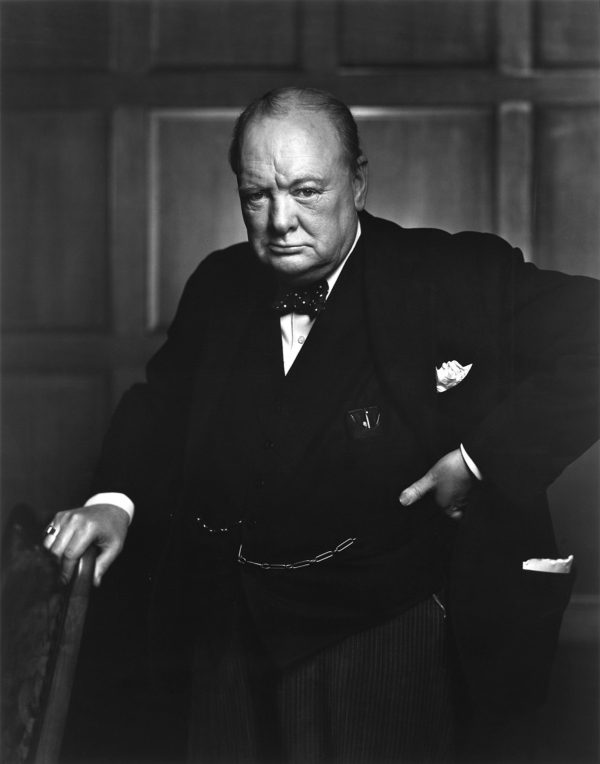
History is written by the victors. – – Winston Churchill
The facts taught to us by the government educational system are very often exactly false. Indeed, some historical figures we are taught to be the most honorable are those most worthy of condemnation. In the United States, probably the most prominent example would be Abraham Lincoln.
As noted in more depth in a previous post, Lincoln was a murderer, traitor, racist and a failure.
For Europe, the most prominent example might be Winston Churchill. Historical accepted fact is clear — Churchill was the hero who stood up against evil and defeated Hitler. Prominent journalist and editor Harold Evans has called Winston Churchill “the British Lionheart on the ramparts of civilization”.
Exactly like Lincoln, commonly accepted history is largely false.
Exactly like Lincoln, Winston Churchill was a murderer, racist, and a failure.
- Winston Churchill diverted food away and helped cause 4 million+ Bengalese civilians to starve to death
- He stole land from Kenyans; allowed his forces to rape and torture
- He strongly supported “terror bombing” of civilians; and also advocated for WMD use against civilians
- Churchill happily bombed and murdered 600,000 and injured 800,000+ German civilians during World War II (Dresden and otherwise) .
- And just as eagerly, after blockading food and medicine, he murdered via starvation and disease 750,000+ of those same German people during World War I.
- He favored and implemented strong and vast socialist interventions in the economy and education.
- He fathered the British welfare and union systems
- Demanded an inflated pound/gold conversion rate and helped set the stage for the Great Depression.
- Conspired with Roosevelt to pull American troops into the War
- Conspired with Stalin to cover up Communist war crimes
- Sent Cossacks, French, Soviet and other refugees back to Stalin for certain sentences of death or gulags
- Expelled approximately “…15 million Germans from their ancestral homelands in East and West Prussia, Silesia, Pomerania, and the Sudetenland. This was done pursuant to the agreements at Tehran, where Churchill proposed that Poland be “moved west,” and to Churchill’s acquiescence in the Czech leader Eduard Benes’s plan for the “ethnic cleansing” of Bohemia and Moravia. Around one-and-a-half to two million German civilians died in this process.”
- Failed to see the communist threat looming over Europe and Asia
- “By 1946, Churchill was complaining in a voice of outrage of the happenings in eastern Europe: “From Stettin on the Baltic to Trieste on the Adriatic, an iron curtain has descended over Europe.” Goebbels had popularized the phrase “iron curtain,” but it was accurate enough. The European continent now contained a single, hegemonic power. “As the blinkers of war were removed,” John Charmley writes, “Churchill began to perceive the magnitude of the mistake which had been made.”155 In fact, Churchill’s own expressions of profound self-doubt consort oddly with his admirers’ retrospective triumphalism. After the war, he told Robert Boothby: “Historians are apt to judge war ministers less by the victories achieved under their direction than by the political results which flowed from them. Judged by that standard, I am not sure that I shall be held to have done very well.”156 In the preface to the first volume of his history of World War II, Churchill explained why he was so troubled:
The human tragedy reaches its climax in the fact that after all the exertions and sacrifices of hundreds of millions of people and of the victories of the Righteous Cause, we have still not found Peace or Security, and that we lie in the grip of even worse perils than those we have surmounted.157
- “By 1946, Churchill was complaining in a voice of outrage of the happenings in eastern Europe: “From Stettin on the Baltic to Trieste on the Adriatic, an iron curtain has descended over Europe.” Goebbels had popularized the phrase “iron curtain,” but it was accurate enough. The European continent now contained a single, hegemonic power. “As the blinkers of war were removed,” John Charmley writes, “Churchill began to perceive the magnitude of the mistake which had been made.”155 In fact, Churchill’s own expressions of profound self-doubt consort oddly with his admirers’ retrospective triumphalism. After the war, he told Robert Boothby: “Historians are apt to judge war ministers less by the victories achieved under their direction than by the political results which flowed from them. Judged by that standard, I am not sure that I shall be held to have done very well.”156 In the preface to the first volume of his history of World War II, Churchill explained why he was so troubled: